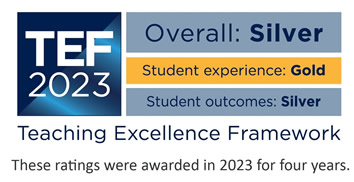FdA Children, Young People and Families
About This Course

The FdA Children, Young People and Families focuses on the 0-19 agenda, and has been designed to equip students with the necessary knowledge and skills in order to ensure that families, children and young people are supported to the highest possible standards.
Students on this programme will develop their understanding of reflective practice to become a reflexive practitioner, the importance of the right values, and of the strengths based approach in building relationships and helping families to recognise their strengths, such as the Signs of Safety approach.
This course is aimed at students who have a desire to work in the children, young people and families sector, in roles such as Family Support workers, youth justice or youth work to name but a few. It is extremely appealing to those already employed in the field who are looking to gain qualifications or progress onto other roles and further qualifications such as teaching, social work or continue onto the BA (Top up) Childhood and Youth. The full and part time options allow for the flexibility and freedom of choice to cater for individual needs.
All applicants, irrespective of entry qualification(s), will be formally interviewed by an appropriate member of academic staff.
Standard offer
Applicants will require 80 UCAS points in a related subject, or 60 Access-to-HE Credits (of which a minimum of 45 must be at Level 3). Applicants are required to hold English GCSE (or equivalent) at Grade C/4.
Non-standard offer
Non-standard entry is intended to support students who may not meet the standard academic entry requirements of a HE programme, normally Level 3 qualifications which attract UCAS points (for instance A-levels or BTEC Level 3 courses). An applicant must be able to demonstrate recent work/experience in the relevant sector, which would give them skills and knowledge comparable to applicants with Level 3 qualifications.
All such applicants will be set an appropriate piece of work in the form of an essay question (1500-word essay) that will consider their academic potential and relevant experience.
DBS
All students are required to have in place an enhanced DBS check. Students can attend the programme whilst waiting for this to be completed; however, students cannot go out onto their work-based learning until a satisfactory DBS has been provided. All students will be expected to declare any criminal convictions at interview to the programme team and learner services. All students will need to produce their DBS at enrolment. Where they are unable to produce this, students will need to sign a disclaimer that, to the best of their knowledge, they have a satisfactory DBS. Failure to do so could result in the student being withdrawn from the programme of study, and they will be liable to repay any finance funded by Student Finance England.
Year 1:
- Preparing to be a Professional
- Study and Research Skills
- Children and Young People’s Rights and Safeguarding
- Lifespan Development
- Social Policy and Welfare State
- Children and Young People’s Wellbeing
Year 2:
- Continuing Professional Development
- Research Skills for Practice
- Equality, Diversity and Anti-oppressive Practice
- Sociology and Contemporary British Society
- Partnerships and Integrated Working
- Youth Support
This course is primarily designed for face-to-face learning, with attendance during lessons for the specified hours within the validation document. However, there may be periods of study where the government advises TEC Partnership that it is not safe to open campuses, or there is limited access due to social distancing measures. If the campus is closed, TEC Partnership will deliver your sessions online and offer you the necessary support and resources remotely. If there is limited access due to social distancing measures a blended model will be adopted, with some lessons taking place in small groups and others using online sessions and support.
This programme may utilise the following teaching and learning methods:
Lectures
The lecture element will provide students with the key knowledge to enable participation in seminars and practical activities, as well as complete their assessments.
Seminars
Seminars will encourage the students to develop their skills and ideas within the subject. Students will be encouraged to reflect on their performance by questioning their own ability and target setting to improve academic practices and performances. These sessions will make use of workshops and exercises, which are used as an informal, ongoing method of formative assessment.
Tutor Visits
As part of the work placement process, students will be visited in their placement by one of the tutors on the teaching team in order for an observation of practice.
Guest Speakers and/or Other Academics
External representatives/employers (within the subject discipline) may be invited to contribute to the module by leading seminars and/or providing short presentations.
Presentations and Debates
Presentations allow for students to build confidence. Debates allow for the tutor to facilitate student-led learning; this process also involves allowing students to be creative and to develop critical thinking strategies.
The programme has been designed and developed in conjunction with employers from across statutory and social enterprise organisations, who were asked to consult on the purpose, module design and assessment of the programme. The programme benefits from extensive research conducted with academics, external examiners and employers to ensure that it meets the needs of the sector, and allows students to develop the necessary skills for working with children, young people and their families.
Progression from this programme is intended to provide students with a range of potential career opportunities, including: youth work, working in educational settings, parental support worker, family liaison officers, Family Hubs, or in third sector organisations. In addition, students may progress onto further studies and complete a top up in a relevant subject such as BA (Hons) Childhood and Youth Studies Top-Up, BSc (Hons) Health and Social Care Top-Up or the BA (Hons) Early Childhood Studies Top-Up – all delivered at TEC Partnership’s Nuns Corner campus. The BA (Hons) Childhood and Youth Studies Top-Up allows students to apply their already existing knowledge on this foundation degree and begin to develop a more cohesive and strategic level of thinking, enabling students to develop and apply their critical thinking skills to their area of expertise.TEC Partnership is committed to offering a related top-up degree in this subject area, which will allow graduates to top up to a full bachelor’s degree. It is likely that the top-up programme will be validated under new TEC Partnership Degree Awarding Powers.








